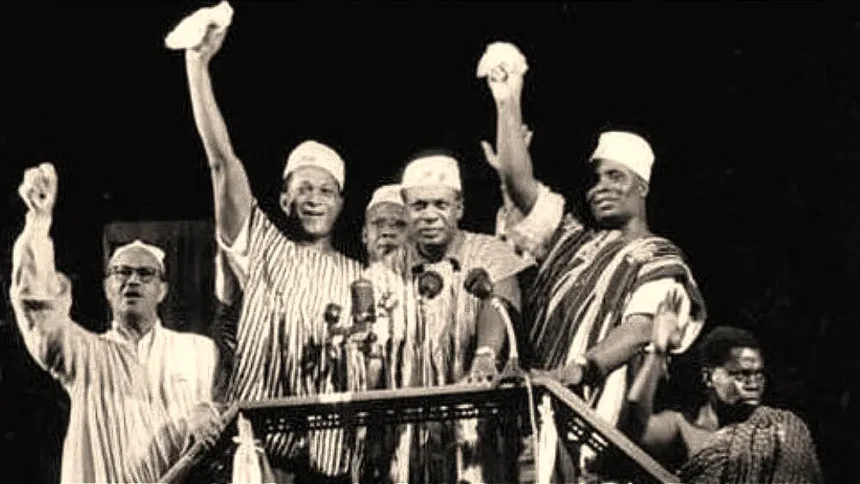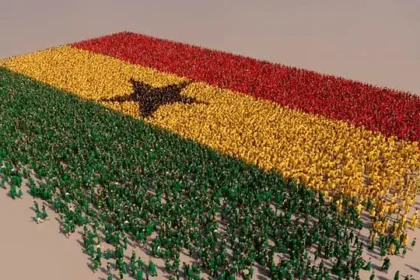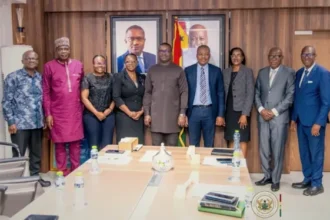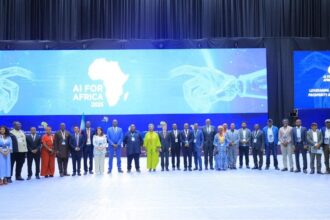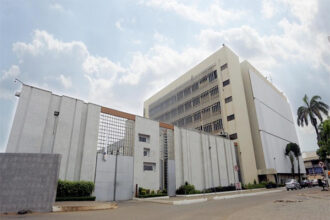We often hear that Ghana was the first sub-Saharan African country to gain independence from colonial rule. That’s true. On 6th March 1957, the Gold Coast became Ghana after gaining independence from colonial rule.
But what led up to that moment was centuries of history: pre-colonial kingdoms, European meddling, colonial administration, organized protest, charismatic leadership, and sometimes painful conflict. Here’s a look at the journey, in case you didn’t grow up learning every piece of it.
The Pre-Colonial Era: Kingdoms, Trade, Power
Long before European ships anchored on the coast, the lands between the Volta and Tano rivers were home to many established, sophisticated societies. Some key points to understand:
- One of the early powerful states in what became modern Ghana was the Akwamu Empire. Around the 1600s-1700s, they grew rich by controlling trade routes, especially gold, and by expanding along the coast.
- The Akyem kingdoms (Abuakwa, Kotoku, Bosome) were also important. They were Akan states with political structures, trade networks, and cultural influence.
- Then there was the Ashanti Empire (Asante). By the 1700s and later centuries, the Ashanti had established themselves as a dominant power in the interior, with centralized authority centered in Kumasi, strong army, elaborate culture and art, and successful resistance to some European incursions.
These states traded gold, ivory, kola nuts, and other goods with Europeans who started arriving in the 15th century (the Portuguese being earliest) and set up forts, trading posts, etc.
The trade grew, but so did its costs: in many cases, Europeans got involved in politics, provoked wars, and later, in the slave trade (both local and transatlantic), changing local power relations.
As European influence increased, some of these kingdoms weakened, were defeated or coerced into treaties, or saw parts of their territory become colonial possessions. By the 19th century, the British had firmly established colonial control over what was called the Gold Coast (south and coastal regions), eventually moving into the Ashanti interior.
Colonial Rule: From Protectorate to Crown Colony
Colonialism in the Gold Coast was gradual but steadily more comprehensive.
- The British, like other European powers, first established forts at the coast for trade (gold, then slaves, then other commodities). Behind the coast, many local rulers kept their authority, at least partly, through treaties or force.
- Over time, the British imposed direct rule in some areas and indirect rule in others. For example, the Ashanti region was eventually annexed (several wars between British and Ashanti), becoming a Crown Colony by 1902. Northern areas were organized as protectorates.
Colonial administration brought infrastructure: roads, schools, railways, but also cash crop agriculture (especially cocoa), taxes, and laws foreign to local customs.
These changes generated both benefits and grievances. Many Ghanaians were educated under mission schools or colonial schools; some served in the colonial civil service or army. Others were hurt by loss of land, forced labor, or economic policies that disadvantaged locals.
A New Era Beckons: Growing Discontent and Political Awakening
After World War II, the colonial order came under strain. The war had changed global politics: colonial powers were weaker, ideas of self-determination were gaining strength, and returning African soldiers had tasted other worlds and expected more than colonial subjugation.
In the Gold Coast:
- Political organizations like the United Gold Coast Convention (UGCC) were formed in 1947. Their goals were moderate: gradual self-government, more representation, respect for chiefs and elites, but with substantial reform.
- Kwame Nkrumah, who had been abroad (studying and involved in activism), was invited to serve as General Secretary of the UGCC. But he had bolder ambitions: “immediate self-government.” Over time, differences between him and the more conservative UGCC leadership grew.
These tensions boiled over in protests and riots. One flashpoint was in February 1948, when ex-servicemen (who had fought in WWII) protested poor treatment and cost of living.
The colonial authorities responded harshly, and arrests were made, including of UGCC leaders. The events of 1948 mobilized public opinion heavily in favor of independence.
The Rise of the Convention People’s Party (CPP) and “Positive Action”
In 1949, Nkrumah broke away or diverged enough from the UGCC to form his own party: the Convention People’s Party (CPP). Its message was simpler, more popular, and more radical: immediate self-government, mass mobilization, using strikes, boycotts, popular demonstrations.
It was less elitist than UGCC, more connected to farmers, workers, youth people who felt colonial rule was not improving their lives.
One of the key tactics was what was called “Positive Action” nonviolent protest, civil disobedience, strikes, boycotts. In 1950, the CPP led these kinds of activities, which alarmed colonial authorities, and led to arrests. But rather than suppressing the independence movement entirely, these actions increased its popularity and credibility.
Then came the elections of 1951, where the CPP won a convincing majority despite Nkrumah being imprisoned at the time. That showed just how popular the CPP was, even under colonial restrictions. After that, Nkrumah was released and asked to form a government. From that position, he pushed forward toward full independence.
Independence Arrives: 6 March 1957
All this momentum, popular struggle, political negotiation, elections, activism, culminated in independence. On 6th March 1957, Gold Coast became independent Ghana, the first sub-Saharan African country to do so under colonial rule.
The name Ghana was chosen to evoke the ancient Ghana Empire, which had been located further north centuries before. As a way to connect with African heritage and signal a future beyond colonial maps.
Nkrumah became Prime Minister, and later, after a republican constitution in 1960, President. He had a grand vision of Ghana as a leader in Pan-Africanism, socialism, industrialization, education, and as a model for other African states.
The Post-Independence Challenges: Dreams, Disappointments, and Democracy
Ghana’s early years of independence were hopeful but difficult.
- Nkrumah’s government pushed for infrastructure, education, industrialization, and social programs. But huge ambitions came at high cost: large debts, economic difficulties, and political tensions.
- In 1966, while Nkrumah was on a trip abroad, his government was overthrown in a coup. The National Liberation Council took over. Ghana experienced a series of political transitions, military regimes and civilian governments over the ensuing decades.
- One of the most famous later coups was 31 December 1981, led by Jerry Rawlings, deposing President Hilla Limann and establishing the Provisional National Defence Council (PNDC).
Over time, Ghana has managed to build more stable democratic governance compared to many of its neighbors, especially since the 1990s. Today, its political system allows for regular elections, relatively peaceful transfers of power, and an active civil society.
Why This History Matters
You might think this is all “old stuff,” but it’s very much alive in how Ghana sees itself, how people understand politics, what symbols we use (flags, colonies, names), how regions feel included or excluded, and what young people learn in school. Some reasons this matters:
- Identity and pride: Knowing about pre-colonial kingdoms like Ashanti or Akwamu helps people sense that African history didn’t begin with Europeans.
- Understanding inequalities: Many of the divisions, mistrusts, regional differences, and debates over development are shaped by colonial legacies (which areas got roads, schools, whose land was taken, who had chiefs recognized, etc.).
- Learning from mistakes: The post-independence era had its missteps, authoritarian rule, coups, economic mismanagement. Knowing what went wrong can help later generations avoid repeating problems.
- Aspiration and inspiration: The story of Ghana’s struggle shows that nonviolent action, organizing, political courage, and mass participation can change history.
Looking back, it’s striking how Ghana’s path to independence was a mix of negotiation and struggle; of diplomacy and protest; of traditional structures and modern political organisations. It wasn’t inevitable, but many brave people made it happen.
When we celebrate Independence Day, when we sing the anthem, when flags rise and we think of “our homeland,” we’re really marking all those layers.
The kingdoms that came before; the outsiders who tried to dominate; the people who dared to speak up; the leaders who took risks; and the generations since who live with both the promise and the problems of that freedom.


